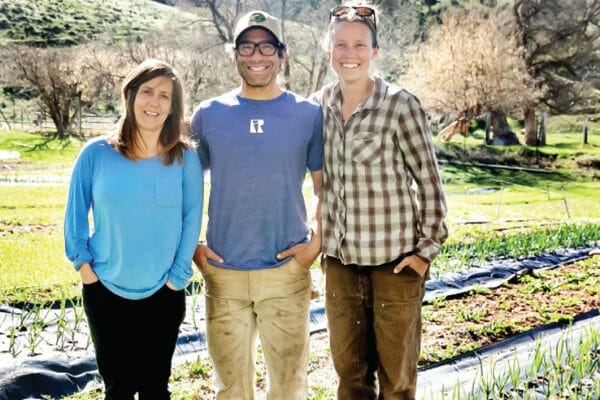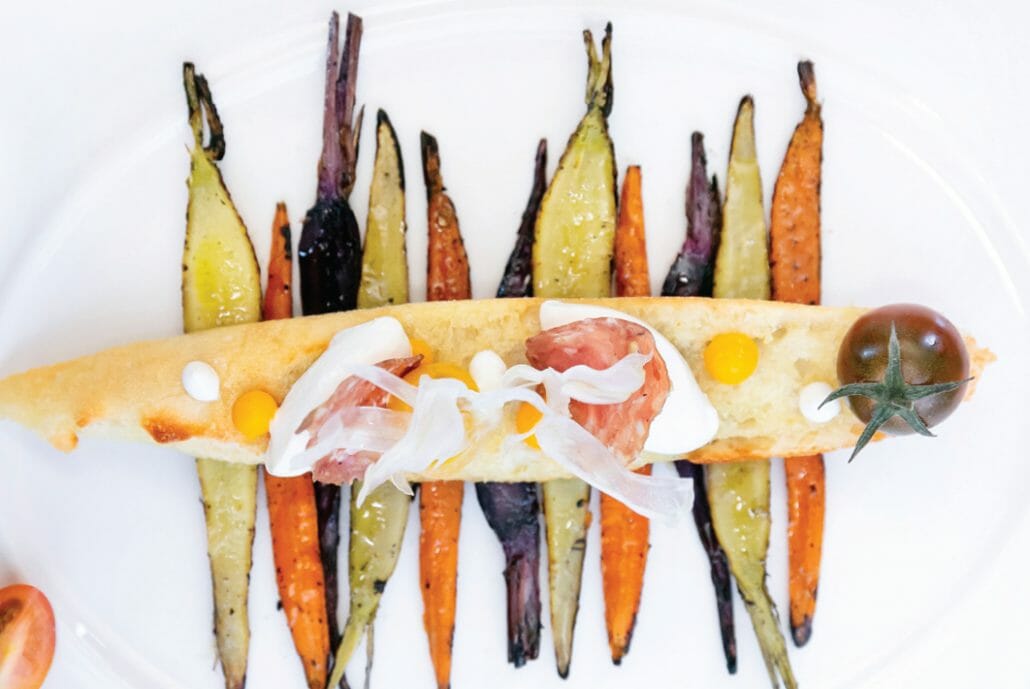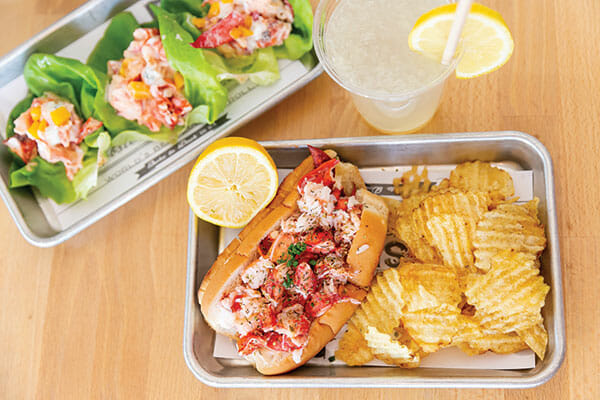
Perfecting Produce
The art of growing at hight altitude
Summer 2019
Written By: Ashley Brown | Images: Angela Howard
WITH LOCATIONS IN BOTH HOYTSVILLE AND OAKLEY, RANUI GARDENS HAS BEEN GROWING HIGH-ALTITUDE CROPS FOR 35 YEARS. THE FARM WAS FOUNDED IN 1984 BY STEVE AND JENNY ERIKSON AND RETAINS THE ORIGINAL NAME, RANUI, WHICH MEANS “ABUNDANT SUNSHINE” IN MAORI. SUE POST AND JOHN GAROFALO PURCHASED THE FARM IN 2004 AND HAVE BEEN REFINING THE ART OF HIGH-ALTITUDE PRODUCE FOR THE PAST 15 YEARS.
Andrea Morgan is a Park City High School graduate who obtained her bachelor’s degree in agriculture from the University of British Colum-bia, Vancouver. When she moved back to Park City in 2013, she volunteered at Ranui Gardens and eventually worked her way to field man-ager. Morgan became a business partner in 2018 when Post and Garofalo were looking to bring in someone with, “new energy and new ideas.”
Ranui Gardens’ cumulative 2.5 acres are at 5,800 (Hoytsville) and 6,500 (Oakley) feet above sea level, where the number of frost-free days are limited. Post says, “The growing season is short, so short, 60 days. We couldn’t do it without season extension techniques.” A vital technique is the use of four hoop houses (akin to greenhouses) that encompass about 8,000-square-feet. Delicate plants like tomato, cucumber, pepper, basil, and some flowers are raised within the hoop houses the entire grow-ing season.

Using row cover or polyester garden fabric to cover the crops is another growing season extender, but it can be a lengthy and tedious process. “When a frost is coming it’s all hands on deck,” says Morgan, explaining it can take over six hours to cover and secure all susceptible crops. Morgan says the most important season extension technique is crop selection, “We choose crop varieties that are quick to grow, hardy, and have the least days to maturity possible.”
At Ranui “giving the soil a lot of love” is the foundation of delectable veggies and dazzling flowers. “We grow soil. We spend as much time and energy on the improvement of the soil as we do on the crop. The crop is the by-product of the soil,” says Morgan. Ranui uses cover crops—or seeds planted at the end of the sea-son—to add nutrients, organic matter, and protect against wind and water erosion.
When asked which growing achievements make them the proudest, Post, mother of two girls smiles, “Growing my children. I am proud they get to live on a farm,” Morgan, mother of a toddler, agrees, “We are growing farmer girls!”
To be sustainable, Ranui depends on the Park City community. Post states, “We have a lot of life-long clients.” After just one visit to the Ranui Gar-dens stand at the Park City Farmers Market, it’s obvious that the art of high-altitude produce perfection is tangible.
To enjoy Ranui Gardens produce prepared at a restaurant visit Tupelo, Handle, Hearth and Hill, or Red Bicycle Breadworks at The Market.

